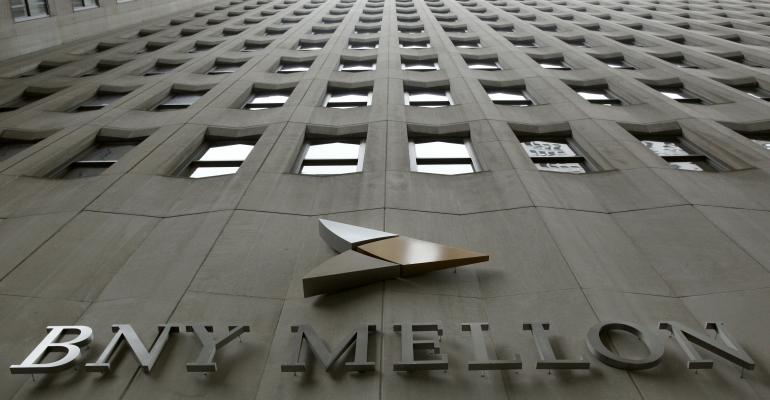(Bloomberg) -- The high-profile pain suffered by Cathie Wood’s flagship strategy over the past two years isn’t stopping rivals from stealing a page from her playbook.
BNY Mellon is looking to launch an exchange-traded fund focused on the crowded innovation space, becoming the latest in a line of issuers who have sought to tap into the huge demand enjoyed by Wood’s ARK Innovation ETF (ticker ARKK).
The BNY Mellon Innovators ETF will seek “long-term capital growth,” according to a filing Monday that didn’t specify management fees or a ticker. The product will invest in innovation-driven companies, which are considered to be “leading-edge” firms thanks to their intellectual property, ground-breaking as well as advanced products and services that can be disruptive to existing business models.
“This is likely to be an aggressive growth ETF — but innovation is a ‘sexier’ name,” said James Seyffart at Bloomberg Intelligence.
Still, it’s important to keep in mind that those firms were “absolutely crushed in 2021 and 2022,” he added. BI estimates that there are around 20 innovation or innovation-adjacent ETFs, the best-known of which is Wood’s fund, which trades under the ticker ARKK.
That product gained tremendous prominence during the early phase of the pandemic, soaring almost 150% in 2020, though it has suffered since as its top holdings — tech companies that project growth far out into the future — buckled amid the Federal Reserve’s monetary tightening campaign.
These types of firms, among the most beaten-up last year, have enjoyed in rebound in January, with the Nasdaq 100 up about 9% since the end of December, compared with the S&P 500’s nearly 5% gain. ARKK has advanced 23% in what’s turning out to be its best month since November 2020.
“There are many other ETFs that try to model disruption and innovation,” said Jane Edmondson, co-founder of EQM Indexes, which helped develop the index for the XOUT ETF that is part of the category. “I do agree that industry innovation and disruption are important and that investors are slow to understand the impact of these changes, which creates investment opportunity.”





